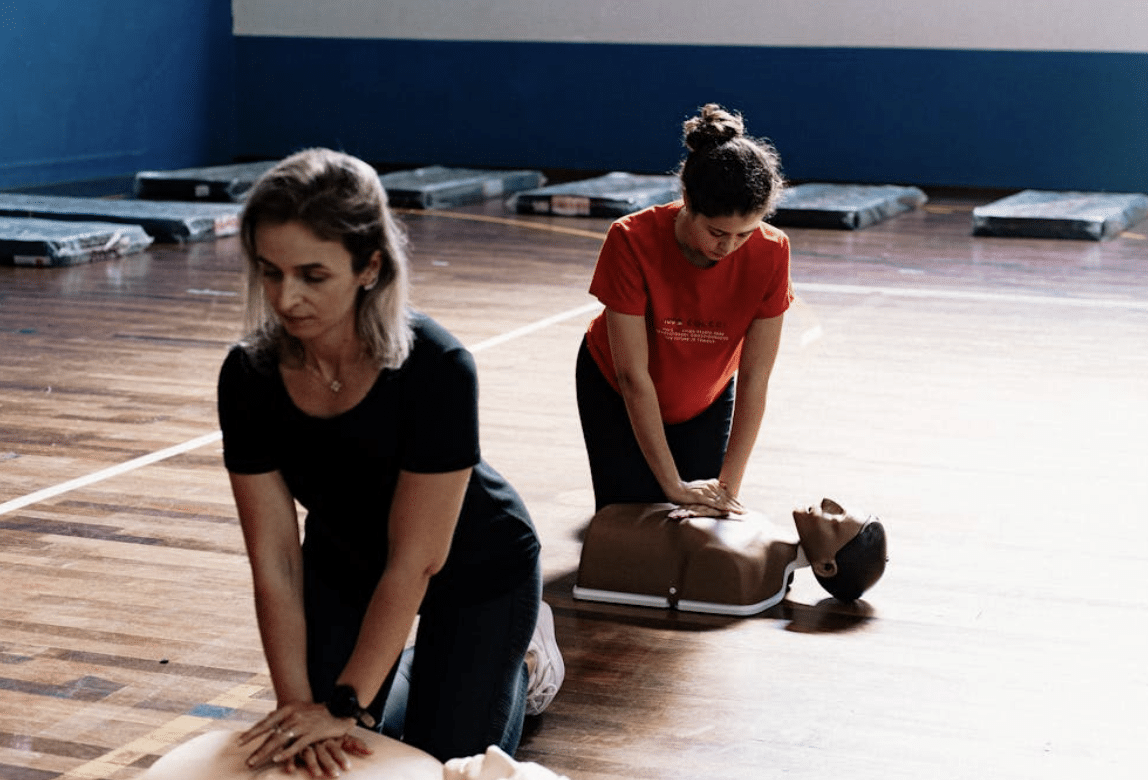
Get A Sneak Peek at my book “Your To-Die-For Life”!
Get a FREE sneak peek! Learn how to use Mortality Awareness as a wake up call to live more boldly.
 Healthcare providers are always fighting a battle against depreciating staff skills. After a course or training, everyone knows what to do when emergencies strike. But after a few months, a lot of the details start to be forgotten, and eventually, they can disappear entirely.
Healthcare providers are always fighting a battle against depreciating staff skills. After a course or training, everyone knows what to do when emergencies strike. But after a few months, a lot of the details start to be forgotten, and eventually, they can disappear entirely.
Fortunately, there are numerous ways to boost skills without breaking the bank. These keep staff skills up to date, regardless of pay grade, allowing even the most forgetful people on your team to stay bang up to date with their knowledge.
Top of the list is professional development platforms. These provide continuous training at scheduled intervals to staff, no matter what their field, making them one of the easiest implementations available.
What’s more, they allow you to go deep on virtually any field. Staff can receive training on areas like precision medicine, genomics, or even integrating AI into healthcare. It’s quite remarkable just how in-depth these solutions are.
For example, Coursera actually has a medical education section that healthcare providers can use to deliver cutting-edge courses to their staff. These bring them up to date on the latest developments in the field, and any changes that they need to pay attention to
When it comes to medical care, how patients feel makes a significant difference in health outcomes, and how they regard the clinic or medical establishment. Those who feel positive are both more likely to get better and leave positive reviews, driving referrals.
That’s why so many outfits are now exploring the possibility of using emotional intelligence training. The idea here is to enable staff to improve their internal stress states so that they can better serve the patients in their care. Many of these programs deal with both resilience and empathy, addressing both sides of the psychological equation for maximum impact.
On the other end of the spectrum, healthcare providers are also boosting skills by training their staff on data analytics. The idea here is to make medical establishments more data-focused, like conventional businesses. The goal is to use real evidence to improve services and outcomes.
Reflecting on practices is something that a lot of clinics do, but they don’t always consult data. As such, they often put their effort into the wrong priorities.
However, data skills enhancement changes this. It teaches staff to focus on the things that are really going to make a difference to patients, and not focus as much on the things that aren’t going to move the needle.
Healthcare providers are also investing in regular first-aid training so they can respond to incidents when they occur. Everyone on the team should be able to handle an emergency, not just doctors or medical professionals.
These days, you can lease an RQI simulation station for regular practice. These are handy for simulating emergency situations involving either adults or children, making them quite versatile. Staff can practice on them once a week to once a month, ensuring their skills are always up to date.
Another avenue that healthcare providers are going down is telemedicine skill development. The idea here is to train them to better interact with patients from a distance.
Developing this skill is actually quite challenging, and only a handful of practitioners get it right naturally. Most don’t have the proper training or etiquette to make patients feel valued or listened to.
However, that can all change pretty quickly. Telemedicine training is actually quite simple and just requires medical professionals to make a few simple tweaks to their computer-side manner. Once they do this, it can actually increase the demand for virtual care, which is handy for patients looking to avoid travel.
Also, healthcare providers are also exploring the possibility of collaborative learning. The idea here is for professionals to work together across disciplines to share their skills and develop a more rounded view of things
For example, you will often see pharmacists working with therapists and nurses. These meetings can foster the growth of holistic approaches to care, leading to better simulations and patient interventions.
AI is, of course, also playing a role in many healthcare settings. Providers are using it for just about everything, leveraging its power to determine what their teams should do and the educational paths they should go down.
For example, AI platforms are getting better at figuring out how well individual providers are performing and suggesting improvements. They can also be trained to see gaps in training so that outfits know where to direct their energy. Sometimes, they can even recommend specific pieces of educational content or courses that have the maximum value for money, and the greatest bang for the buck.
Right now, the applications of AI are still being explored. It’s likely that we will continue to see developments going forward into the future, with new concepts and ideas being developed as the technology matures and improves.
Finally, a lot of healthcare providers are boosting staff skills by investing in simulation-based training. The idea here is to simulate complex procedures so that medical professionals can practice them before actually having to carry them out in real life.
What’s nice about this approach is that it is risk-free. Staff can make as many mistakes as they want and it doesn’t materially affect patient outcomes. They can also continue practicing until they feel they’ve mastered the skill, usually after a few days of trial and error.
Simulation is useful in all sorts of situations. For example, surgeons can just as much use it to practice surgeries as paramedics can use it for emergency response.
Also, today’s simulations are often significantly more realistic than those of yesteryear, thanks to virtual reality and augmented reality technology. These headsets make it a much more powerful way to train and perform tasks before deploying them in the clinic.
So, which of these innovative techniques are you using to boost staff skills and transform training in your organization?
P.S. Before you zip off to your next Internet pit stop, check out these 2 game changers below - that could dramatically upscale your life.
1. Check Out My Book On Enjoying A Well-Lived Life: It’s called "Your To Die For Life: How to Maximize Joy and Minimize Regret Before Your Time Runs Out." Think of it as your life’s manual to cranking up the volume on joy, meaning, and connection. Learn more here.
2. Life Review Therapy - What if you could get a clear picture of where you are versus where you want to be, and find out exactly why you’re not there yet? That’s what Life Review Therapy is all about.. If you’re serious about transforming your life, let’s talk. Learn more HERE.
Think about subscribing for free weekly tools here.
No SPAM, ever! Read the Privacy Policy for more information.